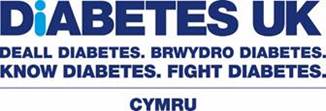New leaflet on life-threatening diabetes complication in memory of Flint musician
Diabetes UK Cymru is supporting a new leaflet on Diabetic Ketoacidosis (DKA) in collaboration with NHS Wales and Dee Pinnington, the mother of Alistair Thomas who died of the complication in 2018.
“When someone you love has type 1 diabetes: Knowing what to do in an emergency” is for relatives, partners and friends of people living with type 1 diabetes and was written by diabetologist Dr Stephen Stanaway, Medical Director at Wrexham Maelor Hospital. It reflects the devastating experience of Dee Pinnington, who spearheaded the initiative.
Alastair Thomas, known as Ali, was a singer and musician from Flint, North East Wales, who had two young children and died of DKA aged 35. He had been diagnosed with type 1 diabetes in his early twenties.
In October 2018, Ali felt poorly with what he assumed to be a stomach upset taking to his bed. After being sick for another day and complaining about back pain, he started to appear disorientated, collapsed and was taken to Chester hospital, where he died five days later.
Remembering Ali
Dee, 63 said: “Ali was very inspirational and had an amazing voice. He was a big character, who was very funny, very kind and made people feel happy. I was touched by all the people who cared so deeply about him in his memorial. I was by his side in his last days and struggled with my grief to accept the loss of my child. I wanted some good to come out of it, so I felt compelled to produce this leaflet to inform and help others as well as remembering and honouring Ali’s life. This leaflet is a reminder, something people can keep on their fridge or at hand, to know what to do, who to call when diabetes becomes an emergency”.
Dee is a counsellor, specialising in trauma and lives with type 1 diabetes, diagnosed when she was 50 and mistaken for type 2: “I was shocked as the symptoms were the same as Ali’s, but I knew what to do and I accepted it as part of who I am. Again, this shows that type 1 can be diagnosed at a later stage of our lives. It’s so important for loved ones to be engaged and that pushed me to get this awareness action off the ground”.
Dai Williams, Diabetes UK Cymru’s National Director said: “We wanted to support Dee and remember Ali. This initiative to show that anyone with type 1 diabetes can go into DKA, at any age.
“It’s about knowing what to do when diabetes goes wrong, for instance after a viral infection. People need to know that infections and other factors can seriously affect blood sugars and trigger this life threating complication and must act very quickly.”
DKA and the 4Ts
The leaflet will be available through all Health Boards in Wales and explains what DKA is, stressing that most people with type 1 diabetes will be able to manage and care for their condition without experiencing a diabetes related medical emergency. However, the leaflet also reminds us that DKA can be dangerous and must never be ignored as it can kill within hours, highlighting the symptoms to look out.
Acting quickly can save lives, so Diabetes UK wants to raise awareness of the common early symptoms of type 1 diabetes for those who haven’t yet been diagnosed and therefore more at risk of DKA.
What are the 4Ts?
Toilet – Going to the toilet a lot
Thirsty – Being really thirsty and not being able to quench the thirst
Tired – Feeling more tired than usual
Thinner – Losing weight or looking thinner than usual
Find out more about DKA and what you can do to avoid it here: https://www.diabetes.org.uk/guide-to-diabetes/complications/diabetic_ketoacidosis
Information about the signs and symptoms of all types of diabetes can be found here: https://www.diabetes.org.uk/diabetes-the-basics/diabetes-symptoms

| [donate]
| Help keep news FREE for our readersSupporting your local community newspaper/online news outlet is crucial now more than ever. If you believe in independent journalism,then consider making a valuable contribution by making a one-time or monthly donation. We operate in rural areas where providing unbiased news can be challenging. |


















